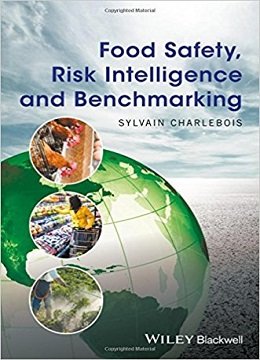- فهرست کتاب ها
- قلب و عروق، قفسه سینه
- نورولوژی، جراحی مغز و اعصاب و علوم اعصاب
- چشم پزشکی، بینایی سنجی
- دندان پزشکی، دهان و فک و صورت
- دستگاه گوارشی و کبد
- گوش، حلق و بینی
- ریه و مجاری تنفسی
- ارولوژی و نفرولوژی
- ارتوپدی و روماتولوژی
- پوست و مو و ناخن (درماتولوژی)
- جراحی (عمومی،زیبایی و ..)
- زنان و زایمان
- پزشکی بازسازی و احیا
- بیماریهای عفونی و قارچی
- غدد و متابولیسم
- سرطان و تومور شناسی
- معاینات و علائم تشخیصی
- بیهوشی (عمومی و موضعی)
- رادیولوژی، پرتو نگاری، سونوگرافی، اسکن، MRI، تصویربرداری، ماموگرافی
- تروما (ارتوپدی، فک و صورت، مغزی)
- آموزش و تحقیقات پزشکی، آمادگی آزمون و منابع پزشکی
- آناتومی و فیزیولوژی
- ایمونولوژی و آلرژی
- پاتولوژی، سیتوپاتولوژی و سیتولوژی
- پروتز و اندام مصنوعی
- پزشکی کودکان، نوزادان و جنین شناسی
- سلول های بنیادی
- هماتولوژی (خون شناسی) و پزشکی انتقال خون
- چاقی، تغذیه و رژیم غذایی
- اخلاق پزشکی
- پزشک قانونی
- پیرپزشکی و پزشکی سالمندان
- مراقبت های ویژه، حاد و بحرانی
- پیوند اعضا
- داروسازی، داروشناسی و دارودرمانی
- روانپزشکی
- دامپزشکی
- پرستاری و دستیاری پزشک
- علوم آزمایشگاهی
- سم شناسی
- انگل شناسی
- ژن شناسی و ژن درمانی (ژنتیک)
- بافت شناسی و مهندسی بافت
- تکنولوژی و بیوتکنولوژی پزشکی
- توان بخشی، کاردرمانی، ورزش درمانی
- پزشکی سنتی و گیاهی و پزشکی جایگزین
- بهداشت و درمان
- مهندسی شیمی
- مهندسی پزشکی
- مهندسی صنایع غذایی
- فیزیک و بیوفیزیک
- زیست شناسی (بیولوژی سلولی و مولکولی)
- شیمی
- بیوشیمی (پزشکی، دارویی و …) و شیمی بالینی
- بیو انفورماتیک، انفورماتیک پزشکی
- ثبت سفارش کتاب
- نرم افزارهای مورد نیاز
- پشتیبانی بوک باز
دانلود کتاب ایمنی مواد غذایی، آگاهی خطر و تعیین معیار
Food Safety, Risk Intelligence and Benchmarking, 1ed
This book comprehensively argues for more future benchmarking between nations. Since the initial food safety benchmarking report was published in 2008, the sharing of data and protocols among nations has dramatically increased. It was intended to identify and evaluate common elements among global food safety systems. More specifically, benchmarking identifies those countries that employ comparatively best practices to assess, manage, and communicate the risks related to the safety of food and their respective food systems. The overarching intent of this benchmarking assessment, however, is to stimulate exchange and discussion on food safety performance among nations.
The era of accountability in food safety is upon us. With social media empowering consumers and an increase in global trades, food industry pundits and food safety regulators alike will be expected to become more responsive and transparent. Protectionism is no longer enough, or even appropriate. With less means, public regulators from around the world are pressed to monitor risks that are often challening to anticipate. Constant learning will be crucial for more effective mitigating strategies and policies. This learning process can be supported by many different sources, including other countries.
Once deemed controversial, benchmarking amongst nations has become a powerful tool allowing food safety experts to anticipate systemic risks which could threaten the welfare of an economy. This book analyzes the strengths and weaknesses in food safety systems around the world in order to assist academics, industry professionals and policymakers to implement effective food safety management systems and processes. The food safety performances of 17 OCDE countries have been compared across four major categories: consumer affairs; biosecurity; governance and recalls; and traceability and management. The purpose of this benchmarking framework is to identify and evaluate common elements among global food safety sustems. The primary objective of this book is not only to identify which country offers the safest food prodcuts to its citizens, but to recognize which countries employ comparatively best practices to contain risks related to the safety of food sustems.
About the Author
Dr. Sylvain Charlebois is Dean of the Faculty of Management and Professor of the Faculty of Agriculture at Dalhousie University, Canada. He acts as special advisor to the United States Department of Agriculture (USDA), to Health Canada on food safety issues, and to Agriculture and Food Canada on agricultural policy.
Contents
۱ Introduction: Facing Global Realities
۲ How Was Canada Doing in 2010? A Comparative Analysis
۳ Consumer Affairs
۴ Biosecurity
۵ Governance and Recalls
۶ Traceability and Management
۷ The 2014 Survey
۸ The Future of Global Food Safety Systems and Risk Intelligence
لینک کوتاه : https://bookbaz.ir/?p=56308
نویسنده : Sylvain Charlebois
ناشر : Wiley-Blackwell; 1 edition
سال انتشار : 2017
زبان کتاب : انگلیسی
نوع فایل : PDF
تعداد صفحات : 224
(ISBN) شابک : 1119071127
قیمت کتاب درآمازون : $57.34
حجم فایل : 2 MB
کتاب های مرتبط:
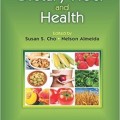 دانلود کتاب فیبر غذایی و سلامتی
دانلود کتاب فیبر غذایی و سلامتیDietary Fiber and Health, 1ed
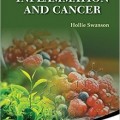 دانلود کتاب فلاونوئیدها التهاب و سرطان
دانلود کتاب فلاونوئیدها التهاب و سرطانFlavonoids, Inflammation and Cancer, 1ed
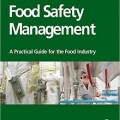 دانلود کتاب مدیریت سلامت مواد غذایی: راهنمای عملی برای صنایع غذایی
دانلود کتاب مدیریت سلامت مواد غذایی: راهنمای عملی برای صنایع غذاییFood Safety Management: A Practical Guide for the Food Industry, 1ed
 دانلود کتاب نورو دجنریشن و بیماری آلزایمر
دانلود کتاب نورو دجنریشن و بیماری آلزایمر Neurodegeneration and Alzheimer’s Disease, 1ed
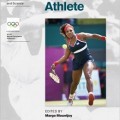 دانلود کتاب پزشکی ورزشی و علم، ورزشکار زن
دانلود کتاب پزشکی ورزشی و علم، ورزشکار زنHandbook of Sports Medicine and Science, The Female Athlete, 1ed
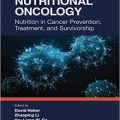 دانلود کتاب انکولوژی تغذیه
دانلود کتاب انکولوژی تغذیهNutritional Oncology, 1ed
 دانلود کتاب رژیم غذایی فسفر: سلامت، تغذیه و جنبه های نظارتی
دانلود کتاب رژیم غذایی فسفر: سلامت، تغذیه و جنبه های نظارتیDietary Phosphorus: Health, Nutrition, and Regulatory Aspects, 1ed
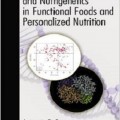 دانلود کتاب ژنومیک و ژنتیک تغذیه در غذاهای کاربردی و تغذیه شخصی
دانلود کتاب ژنومیک و ژنتیک تغذیه در غذاهای کاربردی و تغذیه شخصیNutrigenomics and Nutrigenetics in Functional Foods and Personalized Nutrition
 دانلود کتاب صوتی تغذیه ورزشی دوره دانشکده پزشکی کرش کورس
دانلود کتاب صوتی تغذیه ورزشی دوره دانشکده پزشکی کرش کورسSports Nutrition – Medical School Crash Course
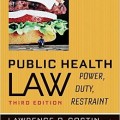 دانلود کتاب قانون سلامت عمومی: قدرت، وظیفه، خویشتن داری
دانلود کتاب قانون سلامت عمومی: قدرت، وظیفه، خویشتن داریPublic Health Law: Power, Duty, Restraint, 3ed
 دانلود کتاب کاروتنوئیدها: تغذیه، آنالیز و فناوری
دانلود کتاب کاروتنوئیدها: تغذیه، آنالیز و فناوریCarotenoids: Nutrition, Analysis and Technology, 1ed
 دانلود کتاب تغذیه کنونی
دانلود کتاب تغذیه کنونیNutrition Now, 8ed
 دانلود کتاب کاروتنوئیدها غذایی: شیمی، زیست شناسی و فناوری
دانلود کتاب کاروتنوئیدها غذایی: شیمی، زیست شناسی و فناوریFood Carotenoids: Chemistry, Biology and Technology, 1ed
 دانلود کتاب بیوفیلم در محیط غذایی
دانلود کتاب بیوفیلم در محیط غذاییBiofilms in the Food Environment, 2ed
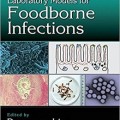 دانلود کتاب مدلهای آزمایشگاهی برای عفونت منتقله از غذا
دانلود کتاب مدلهای آزمایشگاهی برای عفونت منتقله از غذا Laboratory Models for Foodborne Infections, 1ed
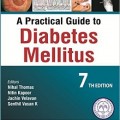 دانلود کتاب راهنمای عملی برای دیابت
دانلود کتاب راهنمای عملی برای دیابت A Practical Guide to Diabetes Mellitus, 7ed
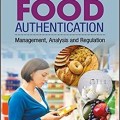 دانلود کتاب احراز هویت غذایی: مدیریت، آنالیز و مقررات
دانلود کتاب احراز هویت غذایی: مدیریت، آنالیز و مقرراتFood Authentication: Management, Analysis and Regulation, 1ed
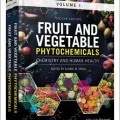 دانلود کتاب فیتوشیمیای میوه و سبزی: شیمی و سلامت انسان (۲ جلدی)
دانلود کتاب فیتوشیمیای میوه و سبزی: شیمی و سلامت انسان (۲ جلدی)Fruit and Vegetable Phytochemicals: Chemistry and Human Health, 2-Vol, 2ed
 دانلود کتاب ویتامین ها: جنبه های اساسی در تغذیه و سلامت
دانلود کتاب ویتامین ها: جنبه های اساسی در تغذیه و سلامتThe Vitamins: Fundamental Aspects in Nutrition and Health, 6ed
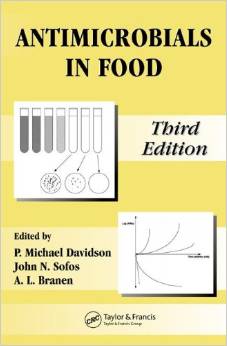 دانلود کتاب آنتی بیوتیکها در مواد غذایی
دانلود کتاب آنتی بیوتیکها در مواد غذاییAntimicrobials in Food, 3ed
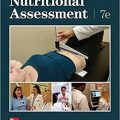 دانلود کتاب ارزیابی تغذیه ای
دانلود کتاب ارزیابی تغذیه ای Nutritional Assessment, 7ed
 دانلود کتاب دانشنامه تغذیه انسان (۴ جلدی)
دانلود کتاب دانشنامه تغذیه انسان (۴ جلدی)Encyclopedia of Human Nutrition, 4ed
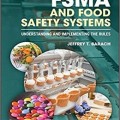 دانلود کتاب FSMA و سیستم ایمنی مواد غذایی: درک و پیاده سازی قوانین
دانلود کتاب FSMA و سیستم ایمنی مواد غذایی: درک و پیاده سازی قوانینFSMA and Food Safety Systems: Understanding and Implementing the Rules, 1ed
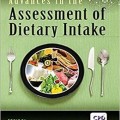 دانلود کتاب پیشرفت در ارزیابی مصرف غذا
دانلود کتاب پیشرفت در ارزیابی مصرف غذا Advances in the Assessment of Dietary Intake, 1ed
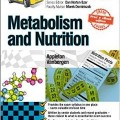 دانلود کتاب متابولیسم و تغذیه
دانلود کتاب متابولیسم و تغذیهCrash Course: Metabolism and Nutrition, 4ed
 دانلود کتاب راهنمای جیبی برای ارتقاء سلامت
دانلود کتاب راهنمای جیبی برای ارتقاء سلامتThe Pocket Guide To Health Promotion, 1ed
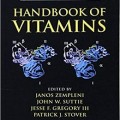 دانلود کتاب ویتامین ها
دانلود کتاب ویتامین ها Handbook of Vitamins, 5ed
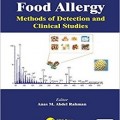 دانلود کتاب آلرژی غذایی: روشهای تشخیص و مطالعات بالینی
دانلود کتاب آلرژی غذایی: روشهای تشخیص و مطالعات بالینیFood Allergy: Methods of Detection and Clinical Studies, 1ed
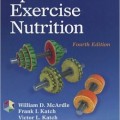 دانلود کتاب تغذیه در ورزش و تمرینات
دانلود کتاب تغذیه در ورزش و تمریناتSports and Exercise Nutrition, 4ed
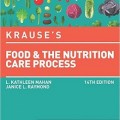 دانلود کتاب غذا و روند مراقبت تغذیه کراوس (ویرایش ۲۰۱۷)
دانلود کتاب غذا و روند مراقبت تغذیه کراوس (ویرایش ۲۰۱۷)Krause’s Food & the Nutrition Care Process, 14ed
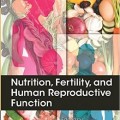 دانلود کتاب تغذیه، باروری و عملکرد تولید مثل انسان
دانلود کتاب تغذیه، باروری و عملکرد تولید مثل انسانNutrition, Fertility, and Human Reproductive Function, 1ed
 دانلود کتاب قلب در بیماری های روماتیسمی، خودایمنی و التهابی
دانلود کتاب قلب در بیماری های روماتیسمی، خودایمنی و التهابی The Heart in Rheumatic, Autoimmune and Inflammatory Diseases, 1ed
 دانلود کتاب راهنمای مربییان برای تغذیه ورزشی ورزشکار
دانلود کتاب راهنمای مربییان برای تغذیه ورزشی ورزشکارAn Athletic Trainers’ Guide to Sports Nutrition, 1ed
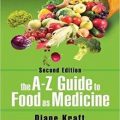 دانلود کتاب راهنمای A-Z غذا به عنوان دارو
دانلود کتاب راهنمای A-Z غذا به عنوان دارو The A-Z Guide to Food as Medicine, 2ed
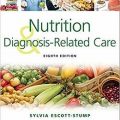 دانلود کتاب تغذیه و مراقبت های مربوط به تشخیص
دانلود کتاب تغذیه و مراقبت های مربوط به تشخیصNutrition and Diagnosis-Related Care, 8ed
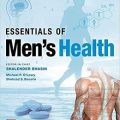 دانلود کتاب موارد ضروری سلامت مردان
دانلود کتاب موارد ضروری سلامت مردان Essentials of Men’s Health, 1ed
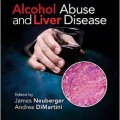 دانلود کتاب سوء استعمال الکل و بیماری کبد
دانلود کتاب سوء استعمال الکل و بیماری کبد Alcohol Abuse and Liver Disease
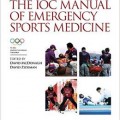 دانلود کتاب راهنمای IOC طب اورژانس ورزشی
دانلود کتاب راهنمای IOC طب اورژانس ورزشیThe IOC Manual of Emergency Sports Medicine
 دانلود کتاب ورزش و ماساژ: مراقبت جامع برای ورزشکاران، تناسب اندام و توانبخشی
دانلود کتاب ورزش و ماساژ: مراقبت جامع برای ورزشکاران، تناسب اندام و توانبخشیSports & Exercise Massage: Comprehensive Care for Athletics, Fitness, & Rehabilitation, 2ed
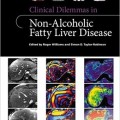 دانلود کتاب وضعیت حاد بالینی در بیماری کبد چرب غیر الکلی
دانلود کتاب وضعیت حاد بالینی در بیماری کبد چرب غیر الکلیClinical Dilemmas in Non-Alcoholic Fatty Liver Disease, 1ed
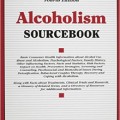 دانلود کتاب مرجع اعتیاد به الکل
دانلود کتاب مرجع اعتیاد به الکلAlcoholism Sourcebook, 4ed
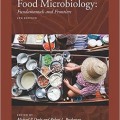 دانلود کتاب میکروبیولوژی مواد غذایی: اصول و مرز
دانلود کتاب میکروبیولوژی مواد غذایی: اصول و مرزFood Microbiology: Fundamentals and Frontiers, 4ed
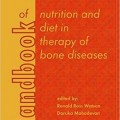 دانلود کتاب راهنمای تغذیه و رژیم غذایی در درمان بیماری های استخوان
دانلود کتاب راهنمای تغذیه و رژیم غذایی در درمان بیماری های استخوانHandbook of Nutrition and Diet in Therapy of Bone Diseases, 1ed
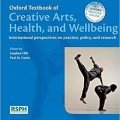 دانلود کتاب هنرهای خلاق، سلامت و تندرستی آکسفورد
دانلود کتاب هنرهای خلاق، سلامت و تندرستی آکسفوردOxford Textbook of Creative Arts, Health, and Wellbeing, 1ed
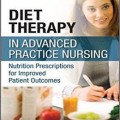 دانلود کتاب رژیم غذایی در تمرین پیشرفته پرستاری
دانلود کتاب رژیم غذایی در تمرین پیشرفته پرستاریDiet Therapy in Advanced Practice Nursing, 1ed
 دانلود کتاب ویتامین B12: پیشرفت و آگاهی
دانلود کتاب ویتامین B12: پیشرفت و آگاهیVitamin B12: Advances and Insights, 1ed
 دانلود کتاب آینده روشن تغذیه
دانلود کتاب آینده روشن تغذیه Bright Futures Nutrition, 3ed
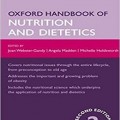 دانلود کتاب راهنمای تغذیه و رژیم غذایی آکسفورد
دانلود کتاب راهنمای تغذیه و رژیم غذایی آکسفوردOxford Handbook of Nutrition and Dietetics, 2ed
 دانلود کتاب پسوریازیس و آرتریت پسوریاتیک: پاتوفیزیولوژی، درمان مداخله ای و پزشکی مکمل
دانلود کتاب پسوریازیس و آرتریت پسوریاتیک: پاتوفیزیولوژی، درمان مداخله ای و پزشکی مکملPsoriasis and Psoriatic Arthritis: Pathophysiology, Therapeutic Intervention, and Complementary Medicine, 1ed
 دانلود کتاب تغذیه و شیوه زندگی در بیماری های خودایمنی عصبی: مولتیپل اسکلروز
دانلود کتاب تغذیه و شیوه زندگی در بیماری های خودایمنی عصبی: مولتیپل اسکلروزNutrition and Lifestyle in Neurological Autoimmune Diseases: Multiple Sclerosis, 1ed
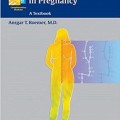 دانلود کتاب طب سوزنی پزشکی در بارداری
دانلود کتاب طب سوزنی پزشکی در بارداریMedical Acupuncture in Pregnancy, 1ed
 دانلود کتاب تغذیه پیشرفته و متابولیسم انسانی
دانلود کتاب تغذیه پیشرفته و متابولیسم انسانیAdvanced Nutrition and Human Metabolism, 7ed
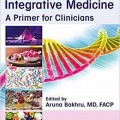 دانلود کتاب تغذیه و پزشکی متمرکز
دانلود کتاب تغذیه و پزشکی متمرکزNutrition and Integrative Medicine, 1ed
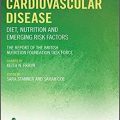 دانلود کتاب بیماری های قلبی و عروقی: رژیم، تغذیه و عوامل خطر در حال ظهور
دانلود کتاب بیماری های قلبی و عروقی: رژیم، تغذیه و عوامل خطر در حال ظهورCardiovascular Disease: Diet, Nutrition and Emerging Risk Factors, 2ed
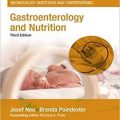 دانلود کتاب دستگاه گوارش و تغذیه: سؤالات و مباحثات نوزادشناسی
دانلود کتاب دستگاه گوارش و تغذیه: سؤالات و مباحثات نوزادشناسیGastroenterology and Nutrition: Neonatology Questions and Controversies, 3ed
 دانلود کتاب اعتیاد و بهبودی برای مبتدیان
دانلود کتاب اعتیاد و بهبودی برای مبتدیانAddiction & Recovery For Dummies, 2ed
 دانلود کتاب درسی پزشکی سبک زندگی
دانلود کتاب درسی پزشکی سبک زندگیTextbook of Lifestyle Medicine, 1ed
 دانلود کتاب گلیکوبیولوژی و بیماری های انسانی
دانلود کتاب گلیکوبیولوژی و بیماری های انسانیGlycobiology and Human Diseases, 1ed
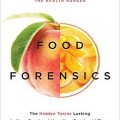 دانلود کتاب پزشکی قانونی غذا
دانلود کتاب پزشکی قانونی غذاFood Forensics, 1ed
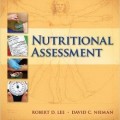 دانلود کتاب ارزیابی وضعیت تغذیه
دانلود کتاب ارزیابی وضعیت تغذیه Nutritional Assessment, 6ed
 دانلود کتاب غددشناسی عصبی اشتها
دانلود کتاب غددشناسی عصبی اشتهاNeuroendocrinology of Appetite, 1ed
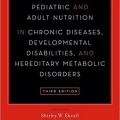 دانلود کتاب تغذیه کودکان و بزرگسالان در بیماری های مزمن، ناتوانی های رشدی و اختلالات متابولیک ارثی: پیشگیری، سنجش و درمان
دانلود کتاب تغذیه کودکان و بزرگسالان در بیماری های مزمن، ناتوانی های رشدی و اختلالات متابولیک ارثی: پیشگیری، سنجش و درمانPediatric and Adult Nutrition in Chronic Diseases, Developmental Disabilities, and Hereditary Metabolic Disorders: Prevention, Assessment, and Treatment, 3ed
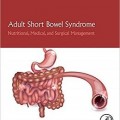 دانلود کتاب سندروم روده کوتاه بزرگسالان: تغذیه، پزشکی و مدیریت جراحی
دانلود کتاب سندروم روده کوتاه بزرگسالان: تغذیه، پزشکی و مدیریت جراحیAdult Short Bowel Syndrome: Nutritional, Medical, and Surgical Management, 1ed
 دانلود کتاب تغذیه و عضلات اسکلتی
دانلود کتاب تغذیه و عضلات اسکلتیNutrition and Skeletal Muscle, 1ed
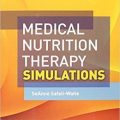 دانلود کتاب شبیه سازی های تغذیه درمانی پزشکی
دانلود کتاب شبیه سازی های تغذیه درمانی پزشکیMedical Nutrition Therapy Simulations, 1ed
 دانلود کتاب رژیم کتوژنیک و درمان های متابولیک
دانلود کتاب رژیم کتوژنیک و درمان های متابولیکKetogenic Diet and Metabolic Therapies, 2ed
 دانلود کتاب فواید آجیل و میوه های خشک برای سلامتی
دانلود کتاب فواید آجیل و میوه های خشک برای سلامتیHealth Benefits of Nuts and Dried Fruits, 1ed
 دانلود کتاب غذاهای تخمیر شده بومی برای مناطق استوایی
دانلود کتاب غذاهای تخمیر شده بومی برای مناطق استواییIndigenous Fermented Foods for the Tropics, 1ed
 دانلود کتاب پپتیدهای درمانی و پروتئین ها: فرمولاسیون، فرایند و سیستم های انتقال
دانلود کتاب پپتیدهای درمانی و پروتئین ها: فرمولاسیون، فرایند و سیستم های انتقالTherapeutic Peptides and Proteins: Formulation, Processing, and Delivery Systems, 3ed
 دانلود کتاب راهنمای کلسترول: زیست شناسی، عملکرد و نقش در سلامت و بیماریها
دانلود کتاب راهنمای کلسترول: زیست شناسی، عملکرد و نقش در سلامت و بیماریهاHandbook of Cholesterol: Biology, Function and Role in Health and Diseases, 1ed
 دانلود کتاب لیپیدها: بیوشیمی، بیوتکنولوژی و سلامتی
دانلود کتاب لیپیدها: بیوشیمی، بیوتکنولوژی و سلامتیLipids: Biochemistry, Biotechnology and Health, 6ed
 دانلود کتاب ایجاد مفهوم مایعات و الکترولیت ها
دانلود کتاب ایجاد مفهوم مایعات و الکترولیت هاMaking Sense of Fluids and Electrolytes, 1ed
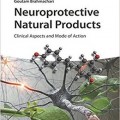 دانلود کتاب محصولات طبیعی نوروپروتکتیو
دانلود کتاب محصولات طبیعی نوروپروتکتیو Neuroprotective Natural Products, 1ed
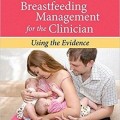 دانلود کتاب مدیریت تغذیه با شیر مادر برای پزشک
دانلود کتاب مدیریت تغذیه با شیر مادر برای پزشکBreastfeeding Management For The Clinician, 4ed
 دانلود کتاب تغذیه امروزی واردلو
دانلود کتاب تغذیه امروزی واردلوWardlaw’s Contemporary Nutrition, 10ed
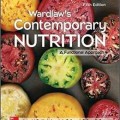 دانلود کتاب تغذیه امروزی واردلاو: یک رویکرد کاربردی
دانلود کتاب تغذیه امروزی واردلاو: یک رویکرد کاربردیWardlaw’s Contemporary Nutrition: A Functional Approach, 5ed
 دانلود کتاب تناسب برای بهتر بودن
دانلود کتاب تناسب برای بهتر بودنFit To Be Well, 5ed
 دانلود کتاب راهنمای عملی برای شرایط شخصی
دانلود کتاب راهنمای عملی برای شرایط شخصی A Practical Guide to Personal Conditioning, 1ed
 دانلود کتاب تغذیه برای سلامت و مراقبت های سلامت
دانلود کتاب تغذیه برای سلامت و مراقبت های سلامتNutrition for Health and Health Care, 7ed
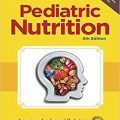 دانلود کتاب تغذیه کودکان
دانلود کتاب تغذیه کودکان Pediatric Nutrition, 8ed
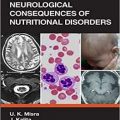 دانلود کتاب پیامدهای عصبی اختلالات تغذیه ای
دانلود کتاب پیامدهای عصبی اختلالات تغذیه ایNeurological Consequences of Nutritional Disorders, 1ed
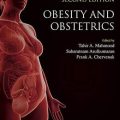 دانلود کتاب چاقی و زایمان: یک بمب ساعتی برای سلامت باروری
دانلود کتاب چاقی و زایمان: یک بمب ساعتی برای سلامت باروریObesity and Obstetrics: A Ticking Time Bomb for Reproductive Health, 2ed
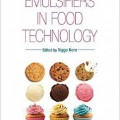 دانلود کتاب امولسیون ها در صنایع غذایی
دانلود کتاب امولسیون ها در صنایع غذاییEmulsifiers in Food Technology, 2ed
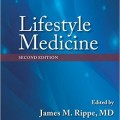 دانلود کتاب پزشکی شیوه زندگی
دانلود کتاب پزشکی شیوه زندگی Lifestyle Medicine, 2ed
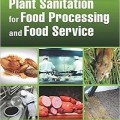 دانلود کتاب بهداشت کارخانه برای فرایند و خدمات مواد غذایی
دانلود کتاب بهداشت کارخانه برای فرایند و خدمات مواد غذاییPlant Sanitation for Food Processing and Food Service, 2ed
 دانلود کتاب غذاهای کاربردی، افزودنی بیولوژیکی فعال و محصولات طبیعی
دانلود کتاب غذاهای کاربردی، افزودنی بیولوژیکی فعال و محصولات طبیعیFunctional Foods, Nutraceuticals and Natural Products, 1ed
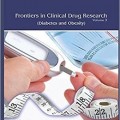 دانلود کتاب مرزهای تحقیقات دارویی بالینی – دیابت و چاقی
دانلود کتاب مرزهای تحقیقات دارویی بالینی – دیابت و چاقیFrontiers in Clinical Drug Research – Diabetes and Obesity, Vol-3, 1ed
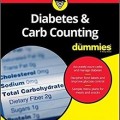 دانلود کتاب دیابت و شمارش کربوهیدرات برای مبتدیان
دانلود کتاب دیابت و شمارش کربوهیدرات برای مبتدیانDiabetes and Carb Counting For Dummies, 1ed
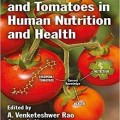 دانلود کتاب لیکوپن و گوجه فرنگی در تغذیه و سلامت انسان
دانلود کتاب لیکوپن و گوجه فرنگی در تغذیه و سلامت انسانLycopene and Tomatoes in Human Nutrition and Health, 1ed
 دانلود کتاب تغذیه برای زندگی
دانلود کتاب تغذیه برای زندگیNutrition for Life, 4ed
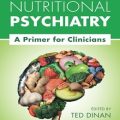 دانلود کتاب روانپزشکی تغذیه
دانلود کتاب روانپزشکی تغذیهNutritional Psychiatry, 1ed
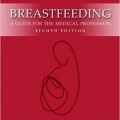 دانلود کتاب تغذیه با شیر مادر: راهنما برای حرفه پزشکی
دانلود کتاب تغذیه با شیر مادر: راهنما برای حرفه پزشکیBreastfeeding: A Guide for the Medical Profession, 8ed
 دانلود کتاب رژیم غذایی کتوژنیک و متابولیک درمانی: گسترش نقش در سلامت و بیماری
دانلود کتاب رژیم غذایی کتوژنیک و متابولیک درمانی: گسترش نقش در سلامت و بیماریKetogenic Diet and Metabolic Therapies: Expanded Roles in Health and Disease, 1ed
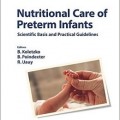 دانلود کتاب مراقبت تغذیه ای نوزادان نارس
دانلود کتاب مراقبت تغذیه ای نوزادان نارسNutritional Care of Preterm Infants, 1ed
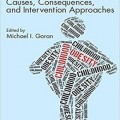 دانلود کتاب چاقی دوران کودکی: علل، پیامد و روش های مداخله
دانلود کتاب چاقی دوران کودکی: علل، پیامد و روش های مداخلهChildhood Obesity: Causes, Consequences, and Intervention Approaches, 1ed
 دانلود کتاب چگونگی کمک به تغییر شیوه زندگی
دانلود کتاب چگونگی کمک به تغییر شیوه زندگی How to Facilitate Lifestyle Change, 1ed
 دانلود کتاب متناسب باش، متناسب بمان
دانلود کتاب متناسب باش، متناسب بمانGet Fit, Stay Fit, 7ed
 دانلود کتاب پنیر: شیمی، فیزیک و میکروبیولوژی (۲ جلدی)
دانلود کتاب پنیر: شیمی، فیزیک و میکروبیولوژی (۲ جلدی)Cheese: Chemistry, Physics and Microbiology, 2-Vol, 4ed
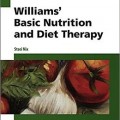 دانلود کتاب تغذیه پایه و رژیم غذایی درمانی ویلیامز
دانلود کتاب تغذیه پایه و رژیم غذایی درمانی ویلیامزWilliams’ Basic Nutrition & Diet Therapy, 15ed
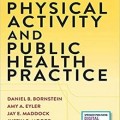 دانلود کتاب فعالیت فیزیکی و تمرین سلامت عمومی
دانلود کتاب فعالیت فیزیکی و تمرین سلامت عمومیPhysical Activity and Public Health Practice, 1ed
 دانلود کتاب صوتی تغذیه دوره دانشکده پزشکی کرش کورس
دانلود کتاب صوتی تغذیه دوره دانشکده پزشکی کرش کورسNutrition – Medical School Crash Course
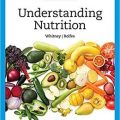 دانلود کتاب درک تغذیه
دانلود کتاب درک تغذیه Understanding Nutrition, 16ed
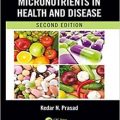 دانلود کتاب ریز مغذی ها در سلامت و بیماری
دانلود کتاب ریز مغذی ها در سلامت و بیماریMicronutrients in Health and Disease, 2ed
 دانلود کتاب درمان مبتنی بر مزاج با حمایت از بی اشتهایی عصبی
دانلود کتاب درمان مبتنی بر مزاج با حمایت از بی اشتهایی عصبیTemperament Based Therapy with Support for Anorexia Nervosa, 1ed
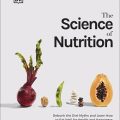 دانلود کتاب علم تغذیه
دانلود کتاب علم تغذیه The Science of Nutrition, 1ed
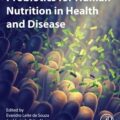 دانلود کتاب پروبیوتیک ها برای تغذیه انسان در سلامت و بیماری
دانلود کتاب پروبیوتیک ها برای تغذیه انسان در سلامت و بیماریProbiotics for Human Nutrition in Health and Disease, 1ed
 دانلود کتاب پیشرفتهای اخیر در ژنتیک تغذیه و ژنومیک تغذیه
دانلود کتاب پیشرفتهای اخیر در ژنتیک تغذیه و ژنومیک تغذیهRecent Advances in Nutrigenetics and Nutrigenomics, Vol-108
 دانلود کتاب معاینه و تشخیص اختلالات اسکلتی عضلانی
دانلود کتاب معاینه و تشخیص اختلالات اسکلتی عضلانیExamination and Diagnosis of Musculoskeletal Disorders, 1ed
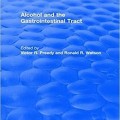 دانلود کتاب الکل و اثر بر دستگاه گوارش
دانلود کتاب الکل و اثر بر دستگاه گوارشAlcohol and the Gastrointestinal Tract, 1ed
 دانلود کتاب فیبر غذایی برای جلوگیری از بیماری قلبی عروقی
دانلود کتاب فیبر غذایی برای جلوگیری از بیماری قلبی عروقیDietary Fiber for the Prevention of Cardiovascular Disease, 1ed
 دانلود کتاب متابولیسم در یک نگاه
دانلود کتاب متابولیسم در یک نگاهMetabolism at a Glance, 4ed
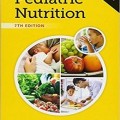 دانلود کتاب تغذیه کودکان
دانلود کتاب تغذیه کودکان Pediatric Nutrition, 7ed
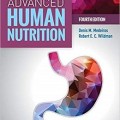 دانلود کتاب تغذیه انسانی پیشرفته
دانلود کتاب تغذیه انسانی پیشرفتهAdvanced Human Nutrition, 4ed
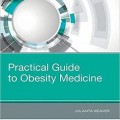 دانلود کتاب راهنمای عملی پزشکی چاقی
دانلود کتاب راهنمای عملی پزشکی چاقی Practical Guide to Obesity Medicine, 1ed
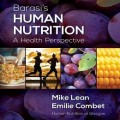 دانلود کتاب تغذیه انسانی باراسی: چشم انداز سلامت
دانلود کتاب تغذیه انسانی باراسی: چشم انداز سلامتBarasi’s Human Nutrition: A Health Perspective, 3ed
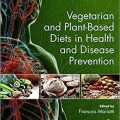 دانلود کتاب گیاهخواری و رژیمهای غذایی گیاهی در سلامت و پیشگیری از بیماری
دانلود کتاب گیاهخواری و رژیمهای غذایی گیاهی در سلامت و پیشگیری از بیماریVegetarian and Plant-Based Diets in Health and Disease Prevention, 1ed
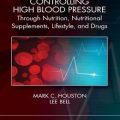 دانلود کتاب کنترل فشار خون بالا از طریق تغذیه، مکمل ها، شیوه زندگی و داروها
دانلود کتاب کنترل فشار خون بالا از طریق تغذیه، مکمل ها، شیوه زندگی و داروهاControlling High Blood Pressure through Nutrition, Supplements, Lifestyle and Drugs, 1ed
 دانلود کتاب کاربردهای درمانی و تغذیه ای جلبک
دانلود کتاب کاربردهای درمانی و تغذیه ای جلبکTherapeutic and Nutritional Uses of Algae, 1ed
 دانلود کتاب تغذیه درمانی چینی: رژیم غذایی در طب سنتی چینی
دانلود کتاب تغذیه درمانی چینی: رژیم غذایی در طب سنتی چینیChinese Nutrition Therapy: Dietetics in Traditional Chinese Medicine, 3ed
 دانلود کتاب Body MOT: این کتاب می تواند زندگی شما را تغییر دهد
دانلود کتاب Body MOT: این کتاب می تواند زندگی شما را تغییر دهدBody MOT: This Book Could Change Your Life, 1ed
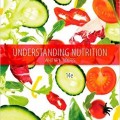 دانلود کتاب درک تغذیه
دانلود کتاب درک تغذیه Understanding Nutrition, 14ed
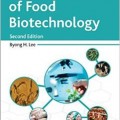 دانلود کتاب اصول بیوتکنولوژی مواد غذایی
دانلود کتاب اصول بیوتکنولوژی مواد غذایی Fundamentals of Food Biotechnology, 2ed
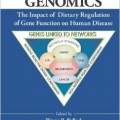 دانلود کتاب ژنومیک تغذیه: تاثیر رژیم غذایی عملکرد ژن در بیماری های انسانی
دانلود کتاب ژنومیک تغذیه: تاثیر رژیم غذایی عملکرد ژن در بیماری های انسانیNutritional Genomics: The Impact of Dietary Regulation of Gene Function on Human Disease
 دانلود کتاب حرکت شناسی: عملکرد سیستم اسکلتی و عضلانی
دانلود کتاب حرکت شناسی: عملکرد سیستم اسکلتی و عضلانیKinesiology: The Skeletal System and Muscle Function, 2ed
 دانلود کتاب مرجع اختلالات غدد درون ریز و متابولیک
دانلود کتاب مرجع اختلالات غدد درون ریز و متابولیکEndocrine and Metabolic Disorders Sourcebook, 3ed
 دانلود کتاب فیزیولوژی ورزش: نظریه و کاربرد در تناسب اندام و عملکرد
دانلود کتاب فیزیولوژی ورزش: نظریه و کاربرد در تناسب اندام و عملکردExercise Physiology: Theory and Application to Fitness and Performance, 10ed
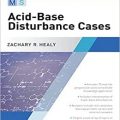 دانلود کتاب سری تسلط بر مفهوم بحرانی: موارد آشفتگی پایه اسیدی
دانلود کتاب سری تسلط بر مفهوم بحرانی: موارد آشفتگی پایه اسیدیCritical Concept Mastery Series: Acid-Base Disturbance Cases, 1ed
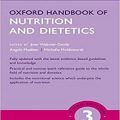 دانلود کتاب راهنمای تغذیه و رژیم غذایی آکسفورد
دانلود کتاب راهنمای تغذیه و رژیم غذایی آکسفوردOxford Handbook of Nutrition and Dietetics, 3ed
 دانلود کتاب تغذیه ورزشی برای ورزشکاران پارالمپیک
دانلود کتاب تغذیه ورزشی برای ورزشکاران پارالمپیکSports Nutrition for Paralympic Athletes, 2ed
 دانلود کتاب مراقبت های پزشکی کمکی
دانلود کتاب مراقبت های پزشکی کمکیAdjuvant Medical Care, 1ed
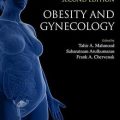 دانلود کتاب چاقی و پزشکی زنان
دانلود کتاب چاقی و پزشکی زنانObesity and Gynecology, 2ed
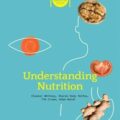 دانلود کتاب درک تغذیه ویتنی
دانلود کتاب درک تغذیه ویتنیWhitney’s Understanding Nutrition 5th Edition
 دانلود کتاب بهداشت و درمان شخص آلوده به ایدز: غذا، تغذیه و شیوه زندگی بدون دارو ضد ویروس
دانلود کتاب بهداشت و درمان شخص آلوده به ایدز: غذا، تغذیه و شیوه زندگی بدون دارو ضد ویروسHealth of HIV Infected People: Food, Nutrition and Lifestyle without Antiretroviral Drugs
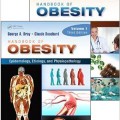 دانلود کتاب بیماری چاقی بری و بوچارد (۲ جلدی)
دانلود کتاب بیماری چاقی بری و بوچارد (۲ جلدی)Handbook of Obesity, Two-Volume Set, 4ed
 دانلود کتاب آسیب شناسی برای درمانگران ماساژ موزبی
دانلود کتاب آسیب شناسی برای درمانگران ماساژ موزبیMosby’s Pathology for Massage Therapists, 3ed
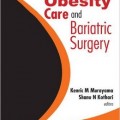 دانلود کتاب مراقبت از چاقی و جراحی چاقی
دانلود کتاب مراقبت از چاقی و جراحی چاقی Obesity Care and Bariatric Surgery, 1ed
 دانلود کتاب اپیدمیولوژی، پاتوژنز و درمان چاقی
دانلود کتاب اپیدمیولوژی، پاتوژنز و درمان چاقیObesity Epidemiology, Pathogenesis, and Treatment, 1ed
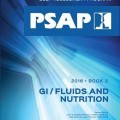 دانلود کتاب مایعات دستگاه گوارش و تغذیه PSAP 2016
دانلود کتاب مایعات دستگاه گوارش و تغذیه PSAP 2016PSAP 2016 Book 2 GI/Fluids and Nutrition, 1ed
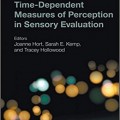 دانلود کتاب اقدامات وابسته به زمان ادراک در ارزیابی حسی
دانلود کتاب اقدامات وابسته به زمان ادراک در ارزیابی حسی Time-Dependent Measures of Perception in Sensory Evaluation, 1ed
 دانلود کتاب سلامتی از طریق تصفیه کننده داخلی بدن
دانلود کتاب سلامتی از طریق تصفیه کننده داخلی بدنHealth Through Inner Body Cleansing, 7ed
 دانلود کتاب ویتامین ها: جنبه های اساسی در تغذیه و سلامت
دانلود کتاب ویتامین ها: جنبه های اساسی در تغذیه و سلامتThe Vitamins: Fundamental Aspects in Nutrition and Health, 5ed
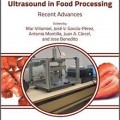 دانلود کتاب اولتراسوند در پردازش غذا: پیشرفت های اخیر
دانلود کتاب اولتراسوند در پردازش غذا: پیشرفت های اخیرUltrasound in Food Processing: Recent Advances, 1ed
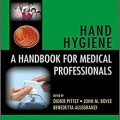 دانلود کتاب بهداشت دست: کتابی برای متخصصین پزشکی
دانلود کتاب بهداشت دست: کتابی برای متخصصین پزشکیHand Hygiene: A Handbook for Medical Professionals, 1ed
 دانلود کتاب راهنمای تغذیه، رژیم غذایی و چشم
دانلود کتاب راهنمای تغذیه، رژیم غذایی و چشمHandbook of Nutrition, Diet, and the Eye, 2ed
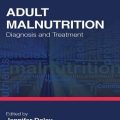 دانلود کتاب سوء تغذیه بزرگسالان: تشخیص و درمان
دانلود کتاب سوء تغذیه بزرگسالان: تشخیص و درمانAdult Malnutrition: Diagnosis and Treatment, 1ed
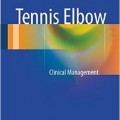 دانلود کتاب آرنج تنیس: مدیریت بالینی
دانلود کتاب آرنج تنیس: مدیریت بالینیTennis Elbow: Clinical Management, 2015th
 دانلود کتاب تغذیه: مفاهیم و اختلافات
دانلود کتاب تغذیه: مفاهیم و اختلافاتNutrition: Concepts and Controversies, 14ed
 دانلود کتاب درمان های متابولیک در ارتوپدی
دانلود کتاب درمان های متابولیک در ارتوپدی Metabolic Therapies in Orthopedics, 2ed
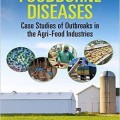 دانلود کتاب بیماری های ناشی از مواد غذایی: مطالعات موردی شیوع در صنایع کشاورزی غذایی
دانلود کتاب بیماری های ناشی از مواد غذایی: مطالعات موردی شیوع در صنایع کشاورزی غذاییFoodborne Diseases: Case Studies of Outbreaks in the Agri-Food Industries, 1ed
 دانلود کتاب تغذیه و پیری: کم ماهیچگی و متابولیسم عضله
دانلود کتاب تغذیه و پیری: کم ماهیچگی و متابولیسم عضلهClinical Nutrition and Aging: Sarcopenia and Muscle Metabolism, 1ed


